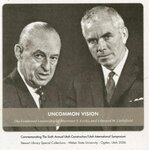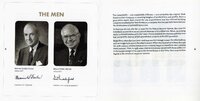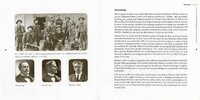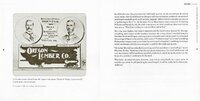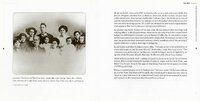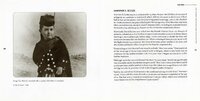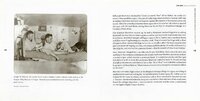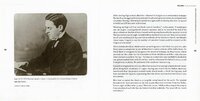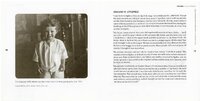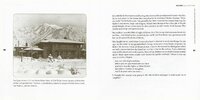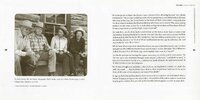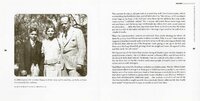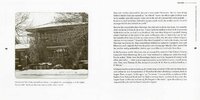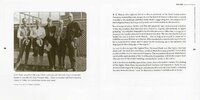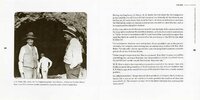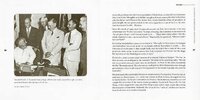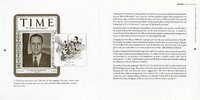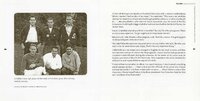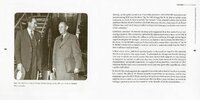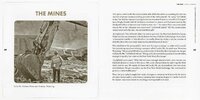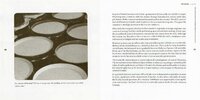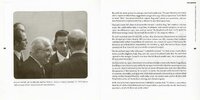| Title |
2006-1 Partners for Progress-Uncommon Vision Keepsake |
| Creator |
Weber State Univesity |
| Contributors |
Utah Construction Company/Utah International |
| Description |
The WSU Stewart Library Annual UC-UI Symposium took place from 2001-2007. The collection consists of memorabilia from the symposium including a yearly keepsake, posters, and presentations through panel discussions or individual lectures. |
| Subject |
Littlefield, Edmund W. (Edmund Wattis), 1914-2001; Eccles, Marriner S. (Marriner Stoddard), 1890-1977; Utah Construction Company; Utah International Inc. |
| Digital Publisher |
Stewart Library, Weber State University, Ogden, Utah, USA |
| Date Original |
2006 |
| Date |
2006 |
| Date Digital |
2008 |
| Temporal Coverage |
2001; 2002; 2003; 2004; 2005; 2006; 2007 |
| Item Size |
7 inch x 7 inch |
| Medium |
books |
| Item Description |
92 page paperback book |
| Type |
Text; Image/StillImage |
| Conversion Specifications |
Archived TIFF images were scanned with an Epson Expression 10000XL scanner. Digital images were reformatted in Photoshop. JPG and PDF files were then created for general use. |
| Master Quality |
400 PPI |
| Language |
eng |
| Relation |
https://archivesspace.weber.edu/repositories/3/resources/212 |
| Rights |
Materials may be used for non-profit and educational purposes; please credit Special Collections Department, Stewart Library, Weber State University. |
| Source |
HD9715.U54U88 2006 Special Collections, Stewart Library, Weber State University |
| Format |
application/pdf |
| ARK |
ark:/87278/s6ksyej5 |
| Setname |
wsu_ucui_sym |
| ID |
97633 |
| Reference URL |
https://digital.weber.edu/ark:/87278/s6ksyej5 |
| Title |
2006_035_page60and61 |
| Creator |
WSU Stewart Library |
| Image Captions |
This photograph of the Board of Directors appeared in the 1 967 Annual Report. Seated left to right are William R. Kimball Jr., Alf E. Brandin, Paul L. Wattis, and Sheppard Mitchell; standing left to right are, Albert L. Reeves, Edmund W. Littlefield, Ernest C. Arbuckle, Lawrence T. Dee, Val A. Browning, George S. Eccles, and Marriner S. Eccles. |
| Description |
The WSU Stewart Library Annual UC-UI Symposium took place from 2001-2007. The collection consists of memorabilia from the symposium including a yearly keepsake, posters, and presentations through panel discussions or individual lectures. |
| Subject |
Edward Littlefield, Marriner Eccles, Ogden-Utah, Utah Construction Company, Utah International |
| Date Original |
2006 |
| Date |
2006 |
| Date Digital |
2008 |
| Item Description |
92 page paperback book |
| Type |
Text; Image/StillImage |
| Conversion Specifications |
Archived TIFF images were scanned with an Epson Expression 10000XL scanner. Digital images were reformatted in Photoshop. JPG and PDF files were then created for general use. |
| Master Quality |
400 PPI |
| Language |
eng |
| Rights |
Materials may be used for non-profit and educational purposes; please credit Special Collections Department, Stewart Library, Weber State University. |
| Source |
HD9715.U54U88 2006 Special Collections, Stewart Library, Weber State University |
| Format |
application/pdf |
| Setname |
wsu_ucui_sym |
| ID |
97895 |
| Reference URL |
https://digital.weber.edu/ark:/87278/s6ksyej5/97895 |

